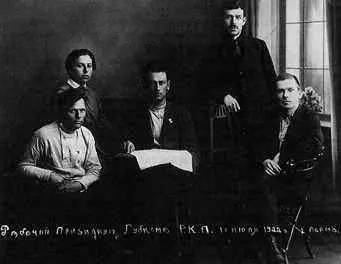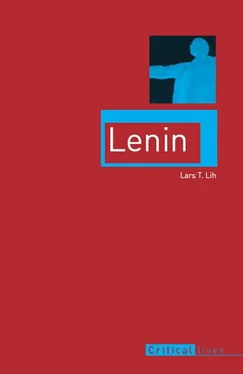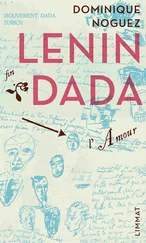In late 1920 Lenin’s long-time associate Grigory Zinoviev recalled the hopes placed in 1917 on ‘soviet democracy’. The democratically elected soviets were supposed to be ‘organs in which the creativity of the masses finds for itself the most free and most organized path, the soviets as organs that guaranteed a constant stream of fresh forces from below, the soviets as organs where the masses learned at one and the same time to legislate and to carry out their own laws’. 48Zinoviev contrasted these dreams with the bleak reality that by late 1920 ‘the most elementary demands of democratism’ were being ignored. 49
The disappointing record of the soviets as instruments of democratic renewal had one implication that increasingly preoccupied Lenin. The soviets were supposed to abolish ‘bureaucratism’ and to completely remake the inherited state apparatus. But as Lenin became more and more frustrated in his dealings with the state bureaucracy he was forced to search for new ways to combat pervasive bureaucratism.
By 1922 Lenin’s anger about the deficiencies of the state bureaucracy had become an obsession. As he remarked to a colleague in February 1922, ‘departments are shit, decrees are shit. Find people, check up on work – these are everything’. 50All through the year he continued to excoriate the gosapparat (state apparatus) and to trace all its inefficiencies and failures to the original sin of tsarism. Again and again Lenin worries that the party is not controlling the state machinery, but the other way around. The state machinery was ‘like a car that was going not in the direction the driver desired, but in the direction someone else desired; as if it were being driven by some mysterious, lawless hand, God knows whose, perhaps of a profiteer, or of a private capitalist, or of both.’ 51
As these remarks show the bureaucracy had become a third source of anxiety, alongside the encirclements by international capitalism and by the ‘petty-bourgeois’ peasantry. The new enemy acquired a bitterly ironical label: the ‘soviet bureaucrat’. Back in 1917 this term would have appeared absurdly oxymoronic, since the soviets were viewed as the polar opposite of ‘bureaucratism’. But after 1917 ‘the soviets’ became more and more of a synonym for the state apparatus as distinct from the party. Just like the pre-revolutionary bureaucracy, the personnel of the ‘soviet apparatus’ was made up mainly of middle-class ‘bourgeois specialists’. They were automatically assumed to be hostile to the socialist cause, or perhaps even saboteurs. Lenin now referred to the soviet bureaucracy as a haven for the shattered remnants of the capitalists and landowners.
Why had the soviets failed so signally that they had almost turned into their opposite? Lenin’s diagnosis focused on the cultural deficit of the proletariat and (even more) the narod . Lenin used kultura to mean such things as literacy, elementary habits of organization and other basic skills of modern ‘civilization’ (another term frequently found in his late writings). The cultural level of the ‘soviet bureaucracy’ was also very low, according to Lenin. Yet, worryingly, these bureaucrats had more culture than the workers or even the Communists. Lenin compared the Bolsheviks to barbarians who had conquered a higher civilization. Didn’t history show the very real danger that ‘the vanquished nation imposes its culture upon the conqueror’, that is, ‘Communists stand at the head of departments, enjoying rank and title, but actually swimming with the stream together with the bourgeoisie’? 52

Russia’s new elite: a provincial party committee in Perm, 1922.
The cultural deficit explained the failure of Lenin’s hopes for the soviets, but it also posed a direct challenge to the legitimacy of socialist revolution in backward Russia. Lenin was confronted by this challenge in January 1923 when he read a memoir of the 1917 revolution written by the left-wing socialist Nikolai Sukhanov. In notes dictated soon afterwards Lenin admitted that socialist critics such as Sukhanov had correctly asserted that Russia was not ready for socialism. He responded to these familiar arguments with a flood of rhetorical questions (I count nine in two pages).
Such questions are the rhetorical device of choice for those who are not quite sure of their position. Lenin’s questions boil down to two: weren’t we justified in taking power in 1917 by Russia’s otherwise hopeless situation? Who’s to say we can’t pull off the unexpected task of creating cultural prerequisites for socialism after taking power? 53
Lenin’s defensive tone shows his uneasy awareness that there was something deeply unorthodox about this relation between a proletarian vlast and culture. The standard Marxist schema proposed the following sequence:
capitalism→culture→ vlast →socialism
For Russia at least, Lenin now maintained that the following sequence was permissible and indeed necessary:
capitalism→ vlast →culture→socialism
In Marxist terms, the idea of the proletarian vlast creating the cultural basis for its own successful existence bears a resemblance to the way Baron Munchausen pulled himself out of the mire by his own bootstraps.
Lenin needed something like a miracle, so he again evoked the spirit of What Is to Be Done? , the book in which he boasted that an ordinary underground activist, even in isolation, could achieve miracles if he embodied the spirit of inspired and inspiring leadership. We shall look at two of Lenin’s attempts to put this spirit to work for the revolution, one in 1919 at the height of the civil war, and the other in 1923, now in a considerably chastened form.
In early 1919 the Bolshevik leader Jacob Sverdlov died of typhus. Sverdlov was the organization man of the Bolshevik top staff and his death was a real blow to the efficient running of the party. Lenin’s eulogy for him was the occasion for a classic exposition of his own concept of leadership. In his eulogy Lenin insists that repressive violence, seen by many people as the essence of Bolshevism, was only an enforced necessity. The real essence of Bolshevism was inspired and inspiring class leadership or, as he expresses it here, Bolshevism’s ability to organize the proletariat and through it the narod . A party leader ( vozhd ) such as Sverdlov can organize the masses because his utter devotion to the cause gives him ‘moral authority’. Sverdlov was only the most outstanding of a whole corps of vozhdi ‘pushed forward’ by the proletariat from its own ranks. According to Lenin these proletarian leaders had started to replace intelligentsia leaders around the beginning of the century.
As so often when discussing heroic leadership, Lenin alluded covertly to the fate of his brother, who had been tragically deprived of the opportunity to become such a leader:
The history of the Russian revolutionary movement over the course of many decades has known a long list of people, devoted to the revolutionary cause, but who did not enjoy the possibility of finding a practical application of their revolutionary ideals. And, in this connection, the proletarian revolution was the first to give these previously isolated individuals, heroes of the revolutionary struggle, a genuine grounding, a genuine base, a genuine framework, a genuine audience and a genuine proletarian army, where these vozhdi could reveal themselves. 54
The image of the proletariat as an ‘audience’ for the inspiring leader – an image also found in What Is to Be Done? – brings out the unique quality of Lenin’s heroic scenario.
Читать дальше













